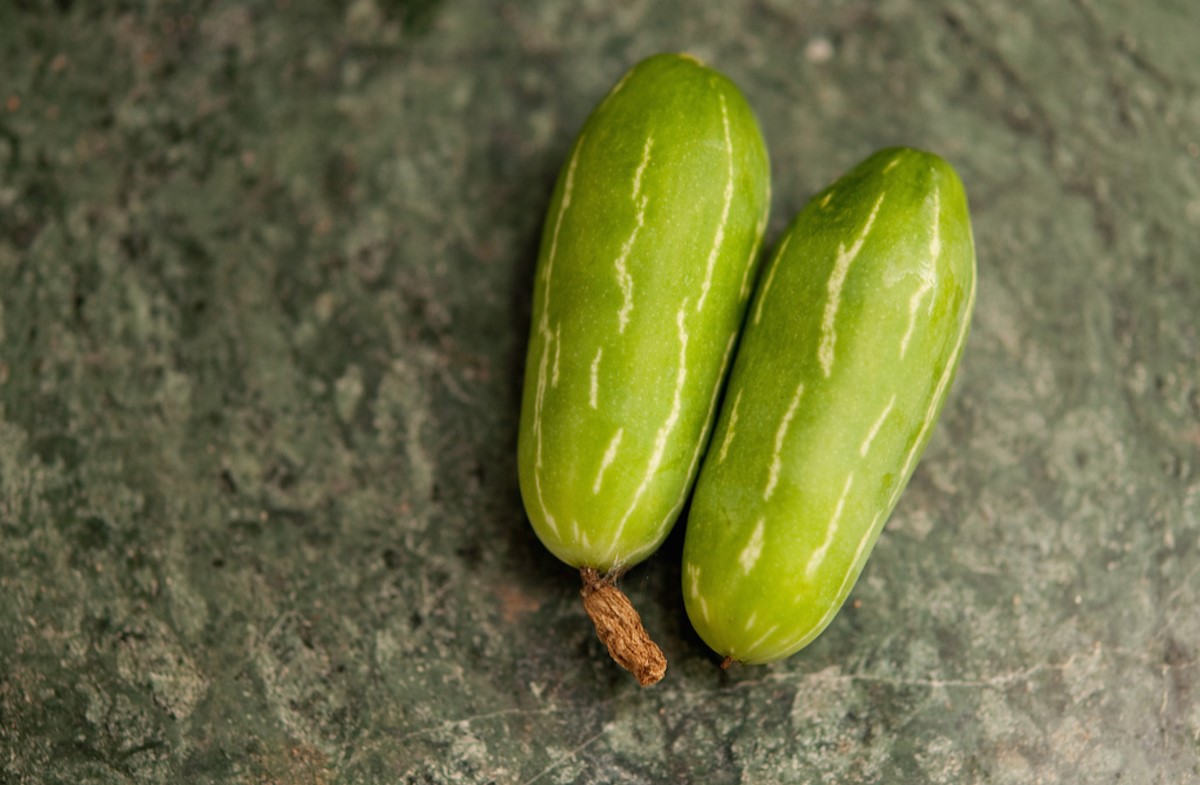
Ivory gourd, also known as Kundru or Tindora, is a fascinating vegetable that often flies under the radar. Ever wondered what makes this humble gourd special? Ivory gourd is not just another green veggie; it packs a punch with its unique taste and numerous health benefits. From boosting digestion to being a low-calorie snack, this gourd has a lot to offer. It's a staple in many Asian cuisines, adding a delightful crunch to various dishes. Whether you're a seasoned cook or a curious foodie, learning about the ivory gourd can add a new dimension to your culinary adventures. Ready to dive in? Let's uncover some intriguing facts about this versatile vegetable!
Key Takeaways:
- Ivory gourd, also known as white gourd or ash gourd, is a versatile vegetable with a mild flavor and high nutritional value. It's great for weight management, hydration, and adding a unique touch to soups, stews, and desserts.
- Beyond its culinary uses, ivory gourd has been used in traditional medicine for its cooling effect, diuretic properties, and potential anti-inflammatory benefits. It's a fascinating vegetable with a rich history and numerous health benefits.
What is Ivory Gourd?
Ivory gourd, also known as white gourd or ash gourd, is a versatile vegetable found in many Asian cuisines. It has a mild flavor and a unique texture that makes it a favorite in soups, stews, and desserts. Let's dive into some fascinating facts about this intriguing gourd.
-
Scientific Name: The scientific name of ivory gourd is Benincasa hispida. This plant belongs to the Cucurbitaceae family, which includes cucumbers, melons, and squashes.
-
Origin: Ivory gourd is native to Southeast Asia. It has been cultivated for centuries in countries like India, China, and the Philippines.
-
Appearance: The gourd has a waxy, white coating on its skin, which gives it a frosty appearance. This coating helps protect the fruit and extend its shelf life.
-
Size: These gourds can grow quite large, sometimes reaching up to 80 centimeters in length and weighing as much as 15 kilograms.
Nutritional Benefits of Ivory Gourd
Ivory gourd is not just a culinary delight; it also packs a punch when it comes to nutrition. Here are some key benefits that make it a healthy addition to your diet.
-
Low in Calories: One of the best things about ivory gourd is that it is low in calories, making it an excellent choice for those looking to lose weight.
-
Rich in Vitamins: This gourd is a good source of vitamins C and B, which are essential for maintaining a healthy immune system and energy levels.
-
High in Fiber: Ivory gourd is high in dietary fiber, which aids in digestion and helps prevent constipation.
-
Hydrating Properties: With a high water content, this gourd helps keep you hydrated, especially during hot weather.
Culinary Uses of Ivory Gourd
Ivory gourd's mild flavor and versatile texture make it a popular ingredient in various dishes. Here are some ways it is used in cooking.
-
Soups and Stews: In many Asian cuisines, ivory gourd is a staple in soups and stews. Its ability to absorb flavors makes it a perfect addition to broths.
-
Desserts: Believe it or not, this gourd is also used in desserts. In India, it is often candied or made into a sweet preserve called "petha."
-
Juices and Smoothies: The gourd can be juiced or blended into smoothies for a refreshing and hydrating drink.
-
Stir-fries: In Chinese cuisine, ivory gourd is commonly stir-fried with garlic, ginger, and other vegetables for a quick and nutritious meal.
Medicinal Uses of Ivory Gourd
Beyond its culinary applications, ivory gourd has been used in traditional medicine for centuries. Here are some medicinal benefits attributed to this gourd.
-
Cooling Effect: In Ayurvedic medicine, ivory gourd is believed to have a cooling effect on the body, making it useful for treating heat-related ailments.
-
Diuretic Properties: The gourd is known for its diuretic properties, which help in flushing out toxins and reducing water retention.
-
Anti-inflammatory: Some studies suggest that ivory gourd has anti-inflammatory properties, which can help in reducing inflammation and pain.
Ivory gourd is a fascinating vegetable with a rich history, numerous health benefits, and versatile culinary uses. Whether you're looking to add a new ingredient to your diet or explore its medicinal properties, this gourd is worth trying.
Final Thoughts on Ivory Gourd
Ivory gourd, also known as white pumpkin or ash gourd, is a fascinating vegetable with a rich history and numerous benefits. From its nutritional value to its medicinal properties, this versatile gourd has been a staple in various cuisines and traditional medicine practices. It's packed with vitamins, minerals, and antioxidants that can boost your health. Plus, its cooling properties make it a favorite in hot climates. Whether you're looking to add a new ingredient to your diet or explore natural remedies, ivory gourd is worth considering. Its low-calorie content makes it perfect for those watching their weight. So next time you're at the market, give this unique gourd a try. You might just find a new favorite.
Frequently Asked Questions
Was this page helpful?
Our commitment to delivering trustworthy and engaging content is at the heart of what we do. Each fact on our site is contributed by real users like you, bringing a wealth of diverse insights and information. To ensure the highest standards of accuracy and reliability, our dedicated editors meticulously review each submission. This process guarantees that the facts we share are not only fascinating but also credible. Trust in our commitment to quality and authenticity as you explore and learn with us.


